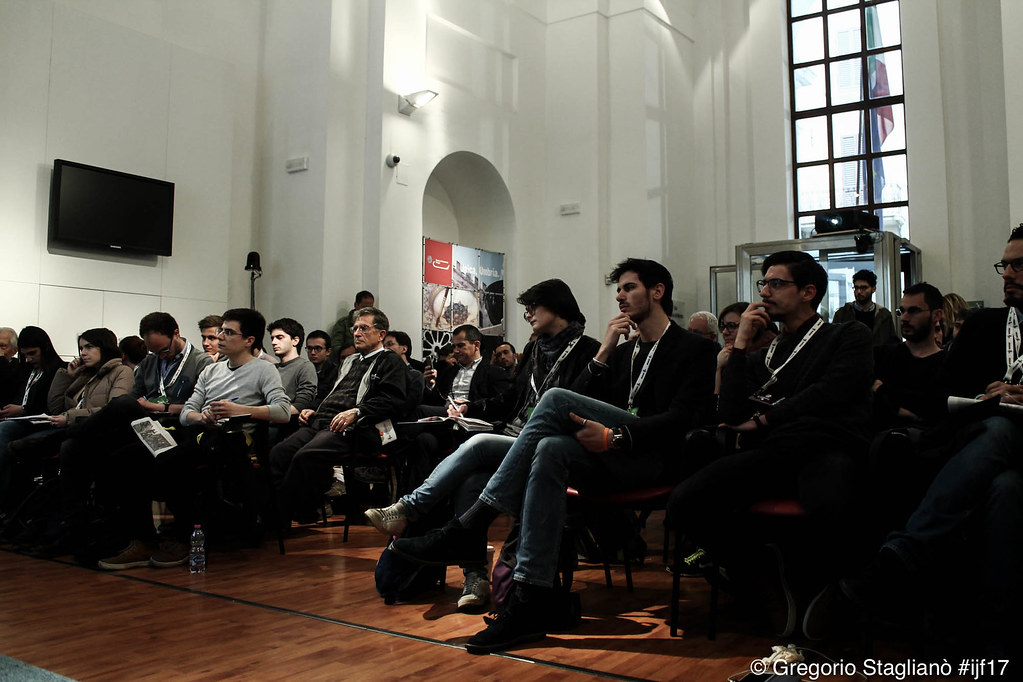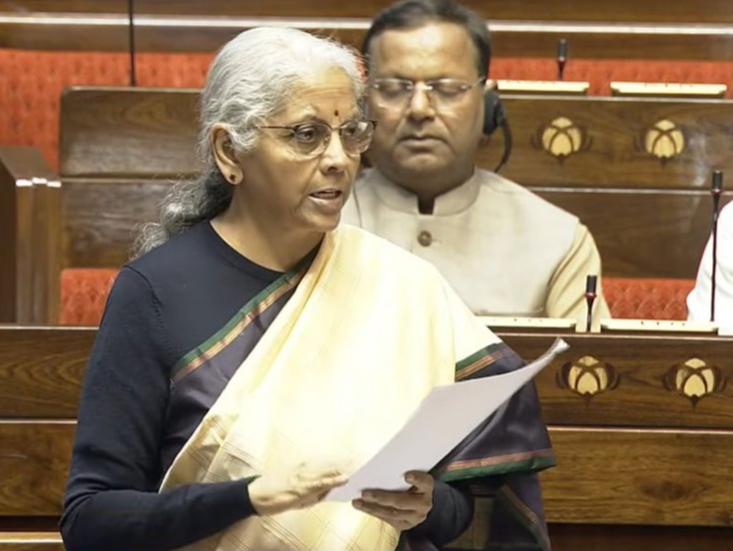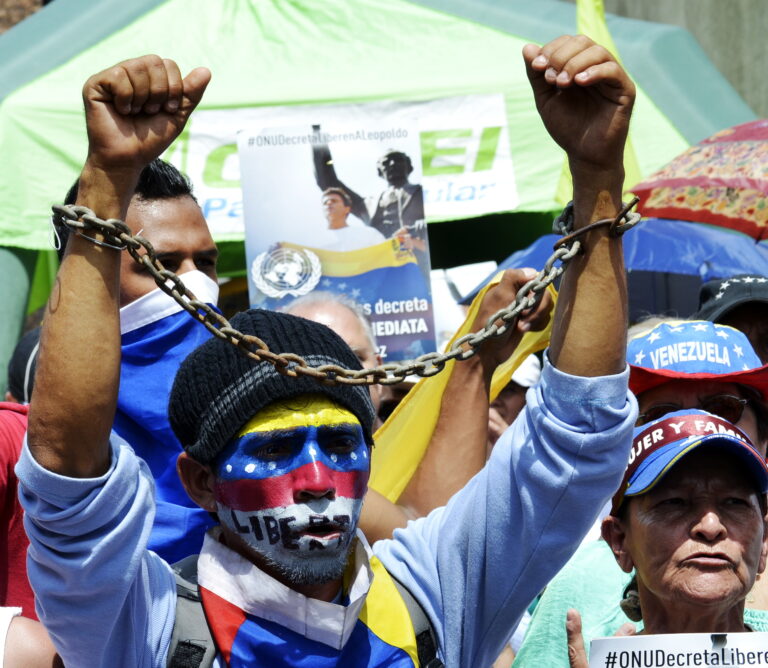
On February 23rd, the German electorate endorsed three prior poll predictions. The opinion polls forecasted a landslide victory for the conservative right-wing Christian Democrats (CDU), a significant rise of the far right, and a historic defeat for Social Democracy (SPD). Furthermore, the polls seemed to confirm a paradox not unique to Germany – the consolidation of the extreme right, despite regular and frequent large mobilisations aimed at counteracting that rise.
A rightward drift
The German election results appear to validate and reinforce the global ascent of reactionary movements. The far right currently governs six European countries: Hungary since 2010, the Czech Republic since 2021, Italy since 2022, Finland since 2023, and the Netherlands and Croatia since 2024. In the last European elections, held in June 2024, various factions representing the European radical right, which are divided into distinct political groups such as Patriots for Europe (PfE), European Conservatives and Reformists (ECR), and Europe of Sovereign Nations (ESN), secured approximately one quarter of the seats in the European Parliament.
Marine Le Pen’s National Rally secured 34% of the votes in the first round of the French legislative elections in June 2024 but was “defeated” by the New Popular Front in the second round. In the lead-up to the German parliamentary elections, the Alternative for Germany (AfD) party gained prominence in the east, becoming the leading party in Thuringia and second in Saxony and Brandenburg. The elections on February 23 disrupted the CDU, SPD, and liberal cordon sanitaire, enabling the AfD to emerge as the third power in the Bundestag. In a notably turbulent election campaign by German standards, voters produced a result that clearly indicated a significant shift to the right, making the political landscape evident and complicating government formation. Additionally, it is worth noting that political polarisation led to a substantial increase in voter turnout, reaching 82.5%.
The election results position Germany among a significant number of countries in Europe and across the globe where right-wing nationalist and conservative parties are securing electoral victories. A notable 14 million votes, translating to 28.6 per cent for the CDU, alongside 10.3 million votes, equating to 20.8 per cent for the AfD, signify a shift towards the right and unite nearly half of the electorate behind them. These votes, particularly those for the AfD, can no longer be characterised as mere warning or protest votes; rather, they reflect a distinct change in public opinion towards the right and a growing embrace of “Germany first.”
The election campaign revolved around an aggressive exclusion policy and a discriminatory campaign against migrants and refugees. The proposed measures aimed at the de facto abolition of the right to asylum, stricter deportation practices that involve the detention of entire families, the elimination of social benefits for refugees, and various other forms of harassment pose a real threat to the tens of thousands of individuals living in Germany. Even if the most egregious of these schemes fail due to practical or legal obstacles, this political escalation would lead to a significant erosion of solidarity and a new level of exclusionary politics within society.
The second significant campaign theme was the anticipated extensive rearmament and militarisation of the German state in the aftermath of the conflict in Ukraine. As part of its nationalist agenda, the AfD opposes the government’s war policy and argues against wasting resources on a non-German conflict. However, it does not disagree with the ruling parties on NATO, the Bundeswehr, or the notion of necessary rearmament; it endorses the US government’s call for 5% of GDP to be allocated to armaments. In the latter stages of the election campaign, the AfD gained support from the US administration’s increasingly aggressive policy towards Ukraine under Trump.
Chancellor Friedrich Merz
After weeks of uncertainty, the most voted parties have formed an alliance to ensure governability during a particularly complex period for both the country and the European Union (EU) as a whole. The CDU has elevated the multimillionaire Friedrich Merz to the position of Chancellor. Although he had stated his intention prior to the election, Merz reaffirmed immediately after the elections an important decision: it is not feasible to govern in conjunction with the far-right AfD.
The CDU barely managed to grow by 12 seats (152 to 164) in this election, although the 21st Bundestag has 630 members—103 seats lesser than the 20th Bundestag, which had 733 members. Despite the CDU’s position as the largest party, its 28% share indicates a long-standing decline.
In his electoral campaign, Merz sought to emulate the discourse and agenda of the extreme right regarding migration, believing that this strategy would expand his electoral base. However, it did not help him gain votes and, instead, bolstered the extreme right. Those wishing to support anti-foreigner proposals were likely to choose the original proponents rather than the imitation. Through his Trump-style campaign, Merz exacerbated polarisation and ultimately reinforced the most radical positions of both the extreme right (AfD) and the left (Die Linke).
Germany is the first European country to have a former head of the largest investment fund as its leader. He resigned from the chairmanship of BlackRock Asset Management Deutschland AG in 2020 and subsequently assumed the chairmanship of the CDU. The multimillionaire, Friedrich Merz, lacks charisma beyond his close-knit entrepreneurial and consulting circles. Merz realised that the CDU was losing voters, so he attempted to conceal his background as a “financial player” in order to adopt a more populist stance during the election campaign.
Having spent 15 years as an advisor to the new US investors who invaded Germany with Agenda 2010 since the turn of the millennium, Merz advised them on the sell-off of “Germany Inc.” and became a multimillionaire himself in the process. It all began in 2005 when Merz resigned from the chairmanship of the CDU parliamentary group in the Bundestag while still serving as a member of parliament until 2009. He immediately not only worked as a lawyer for the US business law firm Mayer Brown but also became its co-owner—and remained so until 2021.
Mayer Brown’s Düsseldorf branch specialises in private equity investments. These investors, referred to as “locusts” in Germany (Heuschrecken) due to their harsh practices, acquired and liquidated thousands of German medium-sized companies over the subsequent decade. Their actions included selling or outsourcing parts of the companies, disposing of real estate, dismissing works councils, freezing wages, and ultimately reselling or launching initial public offerings (IPOs).
This marked the beginning of deindustrialisation in western Germany, following the deindustrialisation in the east. Merz headed the Berlin branch of Mayer Brown and maintained close contact with the Merkel government. He held up to 15 supervisory board mandates in the companies he advised, generating income through multiple avenues: 1. as a lawyer, 2. as a partner in Mayer Brown, and 3. through royalties, bonuses, and preferred shares in the companies he advised.
Daring more capitalism!
In this era of predatory exuberance, Merz authored the book Mehr Kapitalismus wagen: Wege zu einer gerechten Gesellschaft (Daring More Capitalism: Ways to a Just Society) in 2009, exclaiming, “It’s good that we have ‘locusts’ in Germany too.” Driven by his capitalist ideals, he audaciously proclaimed, “There should be no statutory minimum wage!” Abolish dismissal protection! Remove the unions from the factories! Abolish joint management!
With this, he earned his ascent in a dual sense. He rose to the uppermost echelons of new US capital players. In 2016, Merz served as an official at BlackRock’s German branch, where leading firms—BlackRock, Vanguard, State Street, Capital Group, Fidelity, and Wellington—were effectively dismantling the middle class and the largest German corporations.
To ensure the event was as discreet as possible, BlackRock official Merz also arranged meetings between his CEO, Laurence Fink, who flew in from New York, and the then finance ministers: Wolfgang Schäuble (CDU) and Olaf Scholz (SPD). Merz also facilitated meetings with the Chief of the Chancellor’s Office, Helge Braun, and Economics Minister Peter Altmaier (both CDU), as well as with Vice Chancellor Sigmar Gabriel and State Secretary for Finance Jörg Kukies (both SPD)—all conducted away from the public eye.
During these years, BlackRock emerged as the largest shareholder in Germany. No other entity holds as many shares in the DAX, MDAX, and TecDAX’s hundred or so most significant companies. Chancellor Angela Merkel, renowned for her lengthy tenure, was also complicit in endorsing these actions without public disclosure. Her chief financial advisor, Lars-Hendrik Röller, who headed the Finance/Economics Department in the Federal Chancellery, departed with Merkel in 2021 — where did he go? To BlackRock. Despite narratives suggesting that Merkel sidelined Merz, both Merz and Merkel tend to their minor German conflicts in private—they bow to the great man.
SPD fall from grace
Outgoing Chancellor Olaf Scholz witnessed his SPD drop to third place in an election it had no realistic chance of winning. Scholz conceded his defeat before the final results were announced. His party recorded its worst result since reunification in 1990, and furthermore—with various electoral systems—this marked the party’s most disappointing outcome in a national election since 1949.
According to Loren Balhorn, editor in chief of Jacobin’s German-language edition:
“Results for the former governing parties were mixed: the Greens remained in double digits despite their reputation as ‘neoliberals with bicycles’, while their even-more-neoliberal partners, the Free Democrats, now face political oblivion after being ejected from parliament for the second time in twelve years. Overall, though, it is clear that the progressive neoliberal project of the so-called ‘traffic light coalition’, named after the red, green and yellow colours of its constituent parties, has bitten the dust. The outgoing government represented a continuation of the Merkel era, with a little bit of DEI thrown in for good measure and a turn towards outright militarism after the Zeitenwende. Chancellor Olaf Scholz, who has come a long way since the days when he denounced the USA as the ‘true enemy of peace’ while sharing the stage with East German functionaries, has gone so far as to mimic some of Merkel’s trademark mannerisms.”
The SPD, with a meagre 16% of the vote and barely 120 seats, bears the consequences of Chancellor Olaf Scholz’s lack of charisma, the systematic internal blockade of government management in recent years by one of its allies, the Liberal Democratic Party (FDP), and its timid and contradictory response to the myriad problems faced by broad social sectors of the country. These include an economic slowdown, rising living costs, a housing shortage, uncertainty about future prospects, a climate crisis, geographical proximity and the ramifications of the Russian-Ukrainian war, as well as a pervasive sense of insecurity caused by terror attacks.
Scholz severed ties with Christian Lindner, the coalition’s finance minister and the president of the FDP, which led to a government crisis that ultimately prompted these elections. Lindner and his FDP insisted that the German government follow strict spending rules and implement tax cuts, even as his social-democratic colleagues advocated for the preservation of social spending and the boosting of German industry through various economic stimulus. Scholz fired Finance Minister Christian Lindner in November owing to continued differences over expenditure and economic reforms, paving the way for a quick election in the coming months.
The crisis of social democracy is unparalleled. The oldest party in Germany, potentially boasting the largest membership, secured over 40% of the electorate in 1998 under Gerhard Schröder. Since then, the party’s performance has seen a significant decline. Scholz recorded a support rate of 25.7% in 2021, but this figure has now dropped by a further nine points.
The SPD entered the recent elections feeling fatigued, having endured the strain of leading a coalition government alongside the Greens and Liberals through various crises over the past few years. It failed to capitalise on the substantial wave of popular mobilisation against the extreme right, which has been evident across much of the country since early last year. One of these protests, held in February of this year, attracted over 200,000 participants in Munich, with many thousands more joining in various cities.
The rise of the far-right
German state (länder ) elections rarely receive international media attention, but the recent elections in Thuringia and Saxony in September proved to be an exception. The AfD won a German election for the first time since the Nazis fell. It was a bitter coincidence that the AfD celebrated its victory in Thuringia, where it garnered 32.8 per cent of the vote, on the 85th anniversary of the Nazi invasion of Poland, which marked the outset of World War II.
The far-right is the second most voted party in the 21st Bundestag. It more than doubled its vote share compared to the previous election (from 4.7 million to 10.3 million). For the first time, the party also won the majority of second votes in western German districts, such as Gelsenkirchen and Kaiserslautern. Previous non-voters in particular cast their ballots (1.8 million), and, even more bitterly, many unemployed people and workers. Almost one in three of these groups voted for the AfD.
The structural similarities are striking in the West German electoral districts, where the far right has made rapid strides. These districts are marked by the loss of industrial jobs and the increasing precariousness of their workers. For decades, social democrats governed many of these electoral areas. However, the SPD has largely lost its capacity to integrate these communities. In Ludwigshafen am Rhein, home to BASF, the AfD has taken advantage of the profound social crisis.
In the Palatinate (the southern part of Rhineland-Palatinate), the AfD secured the highest number of second votes in the most recent federal elections: 24.3% in Ludwigshafen, 25.9% in Kaiserslautern, 26.9% in Kusel, and 27.8% in Zweibrücken. Four AfD representatives from the Palatinate will enter the new Bundestag. However, Ludwigshafen has long been regarded as a “red stronghold”—an industrial city where the SPD has consistently held the lead.
The catastrophic shift to the right in 2025 is largely attributed to the SPD’s weakness and a shift in sentiment, particularly among wage-earners. This disparity is also evident at the federal level, where 21.8 per cent of union members voted for the AfD, compared to 20.6 per cent for the SPD. Four years ago, the SPD still had a clear lead among union members, with 32.1 per cent voting for the SPD and “only” 12.2 per cent for the AfD. Ludwigshafen exhibits a similar trend, identifying districts with high AfD vote shares as working-class districts.
The mainstream media and representatives of centrist parties often refer to the new right as an external force that has unexpectedly emerged on the political scene, posing a threat to the liberal order due to its oscillation between centre-left and centre-right parties. However, this assertion is empirically false. Nearly all of the AfD’s leading figures come from conservative West German backgrounds and have previously worked in public administration or the private sector—establishment figures who have shifted from the centre-right to the hard-right, where they misleadingly present themselves as anti-establishment rebels.
This term is more appropriate for party activists who emerged from aggressive neo-Nazi groups on the fringes of West German society, to whom the CDU provided a political home after the fall of the Third Reich. The neo-Nazis, who made limited inroads into electoral politics in the late 1960s and 1980s, remained marginalised until they found common ground with disgruntled conservatives. The Deutschmark nationalism served as an ideological umbrella for both parties and became a rallying point for a growing number of individuals dissatisfied with the neoliberal globalisation promoted by the centrist parties. In the turbulent days following the fall of the Berlin Wall, Deutschmark nationalism emerged as a mass ideology that significantly influenced the direction of East and West German politics towards reunification. Following reunification, it became, with some variations, an ideological reference point that facilitated the integration of various political ideas and currents into a new right-wing political project, the AfD—a product of Deutschmark nationalism.
The far-right group garnered the most votes from abstentionists, young people, and workers in the deindustrialised former GDR. The chameleonic Elon Musk also engaged in the campaign by sharing a video in support of the AfD candidate, Alice Weidel, in which they discussed matters live on X. The AfD defended its key programmatic objectives, which include tightening immigration laws, reducing social rights, and fostering positive relations with Russia, similar to Le Pen and Meloni. However, neither the Gallic nor the Italian ultras have yet denied military aid to Ukraine.
The Left gains
The results on the left were interesting. Opinion polls positioned the Sahra Wagenknecht Alliance (Bündnis Sahra Wagenknecht – BSW) in third place, a splinter party from Die Linke in 2023 that had garnered between 10% and 15% support across several ‘länder’; however, this time it failed to reach the 5% threshold necessary to enter the Bundestag. In contrast, Die Linke (The Left), which estimates suggested would struggle to retain its parliamentary representation, ultimately secured 8.8% of the votes and won 64 seats, gaining 25 deputies compared to the previous legislature, with a significant portion of its support stemming from the SPD electorate. The leader of Die Linke, Heidi Reichinnek, known as the “Queen of TikTok” was highly active in the lead-up to election day, denouncing the right-wing parliamentary campaign aimed at restricting immigration and asylum while successfully appealing to younger voters.
The opinion polls predicted 15% for BSW following their successes in Brandenburg, Saxony, and Thuringia; however, months later, the party’s momentum dissipated. In its program, BSW advocated a firmer stance on migration issues compared to the SPD, along with the reindustrialization of Germany and the cessation of arms shipments to Ukraine. Its scepticism regarding certain aspects of neoliberalism and migration has resulted in it being labelled “a red hippie,” a term that signifies the convergence of extreme-right and extreme-left factions opposed to the globalisation process. Time will tell if it represents a finished project or if it embodies the elements of a new left. It presented a clearer discourse on the Ukrainian conflict—albeit remaining equally ambiguous about Israel—and made claims for protectionism coupled with anti-immigration rhetoric and solutions.
Die Linke, on the other hand, has undergone a remarkable turnaround. The traditional brand of the Left has recovered recently from the deep crisis of its 2021 results, where it maintained its representation by being the most voted party in two electoral districts—although it did not surpass the 5% threshold. It is poised to be the fifth largest force in the next legislature, exceeding the 5% mark with an unexpected 8.7% of the vote and securing 64 deputies. With a campaign centred on appealing to the youth vote—estimates from the ballot box suggest it may have been the most popular choice among those under 25—and a revitalised leadership team composed of Ines Schwerdtner and Jan van Aken, Die Linke is emerging from its crisis and aspires to dominate the discourse on the left in a Germany that is shifting to the right. Its candidate in the February 23 elections, Heidi Reichinnek, has stated that the party’s focus on social and economic issues, such as affordable rents and reduced VAT on food, has been “particularly successful” thus far.
The party’s unexpected resurgence does provide at least some hope that a descent into barbarism may not be inevitable. The genocide in Gaza has remained notably absent from Die Linke’s messaging, despite the German government’s unwavering support for Israel and the party’s formal positions to the contrary. Nevertheless, one should not allow ‘perfect’ to be the enemy of the ‘better’.
Merz 2025: The Downplayed BlackRock Program
Germany, the second most significant source of military and financial aid to Kyiv, has made the Ukrainian war and its economic repercussions a central campaign issue. The Grosse Koalition is more inclined than ever to persist, despite the impending recession since the conflict commenced. The next Chancellor, Friedrich Merz, stated he believes in peace, albeit not “at the price of submission to an imperialist power; (…) Ukraine must win the war.” The leaders of France, the United Kingdom, and Germany are preparing the European Union for confrontation.
When Merz became CDU chairman, he resigned from BlackRock, fearing backlash from voters. He is an extreme populist, an ideological chameleon, and a liar. He seeks to persuade the Tagesschau viewers and Bild readers that he has severed all ties with BlackRock. However, in January 2025, prior to the election, BlackRock CEO Fink invited this former employee to an exclusive dinner at a luxury hotel during the World Economic Forum in Davos, Switzerland, outside the official programme. BlackRock, which has a history with Clinton, Obama, and Biden/Harris, has now skilfully declared its support for Trump and has, for instance, withdrawn from the climate alliance.
Fink is leading the way by focussing on profits and maintaining his ideological and political agility. Fink has praised Trump, Trump’s aide Musk has praised Weidel, and now Trump has congratulated Merz on his election victory.
Merz is now presenting himself as a German Trump imitation – Make Germany’s economy great again! Foreign investors in! Asylum seekers out! Away with all the climate and environmental nonsense! Reduce bureaucracy! Away with the citizen’s income! Away with data protection! Lower corporate taxes! There will be no more debates in my government! I will take action immediately on the first day of my chancellorship! I don’t need a party conference for the coalition agreement!
Merz wants to make Trump an offer for the economic recovery: Germany and the EU will buy even more fracking gas and arms from the US — in return, Trump will not impose tariffs on imports from Europe, Merz announced after dinner with BlackRock CEO Fink. This is what Merz envisions for Germany’s economic strengthening: further deindustrialisation and impoverishment, profits for BlackRock & Co. in the US in return for higher bonuses for CEOs, and the DAX rising above 20,000 for the first time—as is already the case amidst the economic downturn.
In recent years, undocumented work and the work of ‘illegal’ immigrants, mostly migrants, have increased in construction; the catering industry; domestic care and prostitution; security services; private households; and companies. This is the US model: letting migrants in, simultaneously inciting hatred against them, and blackmailing them into silent, invisible, low-paid workers with the threat of deportation.
At the same time, the anti-refugee campaign aims to obscure the underlying causes of refugee flows, including wars and the ongoing impoverishment of poorer countries—such as through the supply chains of digital corporations, e-mobility, textiles, coffee, and sugar. Mass shootings are among the consequences of this practice.
Following the example of the SPD/Greens’ Agenda 2010, Merz launched Agenda 2030. The proposal aims to further reduce regular working incomes and, consequently, statutory pensions. Therefore, Merz advocates the BlackRock concept of private pensions in two forms: 1. Employees should purchase the BlackRock ETF financial product, available from savings banks for as little as €20 a month with tax benefits; 2. The “Early Start Pension”: Parents should contribute €10 a month into their children’s mobile savings accounts via an app from the age of 6, thereby acclimatising their children to a low future working income.
Merz also advocates for his invisible master in another area. BlackRock acquired the company Global Infrastructure (GPI) last year. This acquisition enables the financial group to enter the water and wastewater sectors, as well as power plants, energy lines, data centres, and ports; the US-affiliated states lack funds for these due to their higher military budgets. Now, Merz is also proposing private financing: the services would be even more costly than before. Merz’s “Germany first” would thus be ensnared by “America first”, both in terms of investment and military policy, leading to increased poverty for the majority population, heightened refugee agitation with an influx of invisible, exploited migrants, even more unearned and limitless wealth for an antisocial minority, the dismantling of democracy, further rearmament, and war—and rising stock prices.
Merz’s Germany project would have limited and potentially unstable political support. Consequently, Merz would also advocate for “unpopular” measures — a tactic frequently employed by populists. This is why Merz/BlackRock are open to embracing right-wing radicals, from moderate to extremist and racist figures such as Trump, Zelenskyy, and Netanyahu, on both a national and international scale. It is the task of democrats to recognise the perils of a veiled dictatorship, to unite a diverse array of individuals affected by this capitalist policy, including those from the entrepreneurial sector, in an unprecedented manner, and to achieve this through European and international collaboration.
Whither Germany?
Whether the left in Germany can confront the Merz effect will largely depend on their ability to channel the current momentum into a long-term social project that mobilises more than just young people and the core electorate. Examining voter migration, it is evident that the support gained predominantly came from disenchanted Green and SPD voters. Although Die Linke has made strides across all social classes, its backing remains disproportionately young, urban, and educated, whereas the AfD continues to be the preferred party for the unemployed, workers, and those who perceive their economic situation as poor.
Such a reconstruction project must aim to win back precisely these milieus to form “progressive majorities” that do not depend on swing voters within the existing left-liberal spectrum. Instead, the objective now is to expand its base in the long term and sustainably. However, this mission will fail if the party gives in to the temptation of aligning with the political centre under the guise of “democracy”. The defeat of the BSW, which quickly entered two state governments after a promising start and received the consequences for it, serves as a lesson in this regard: anyone seeking to permanently shift the balance of power in this country to the left and weaken the extreme right must primarily seek conflict with the very centre that created the conditions under which the AfD gained power in the first place. If a left-wing party simply aligns with the centre, it will eventually become synonymous with them and lose their political significance.
[This article was originally written for GroundXero Magazine.]
Editorial Board Member of Alternative Viewpoint




